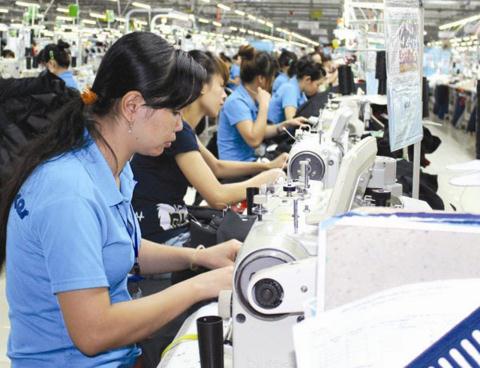[ad_1]

Commenting about the figures, Le Xuan Truong from the Finance Academy said Chinese tend to make investments with modest capital or buy into existing businesses.
As investors, Chinese have to consider the places and modes of investment and the business fields that can bring optimal profits. There is no requirement on legal capital in certain business fields; that is, the investors can contribute capital based on their capability.
China’s proximity allows small businesses to make outward investment at low costs. Chinese mostly pour capital into fields they have advantages in, such as traditional medicine clinics, healthcare and beauty services.
Many Chinese investors have been found contributing capital to swindle Vietnamese partners and consumers. They tricked banks out of capital and ran away, failing to pay Vietnamese workers.
|
Many Chinese investors have been found contributing capital to swindle Vietnamese partners and consumers. They tricked banks out of capital and ran away, failing to pay Vietnamese workers. |
Some economists have expressed their concern about the recent new Chinese investment wave, saying that it could have adverse effects. As Chinese mostly invest in small businesses and try to optimize their profit, they will ignore the requirements on environment and bring outdated technologies to Vietnam.
In general, only large enterprises which plan long-term investment will pay attention to solutions to ensure sustainable development, care about the community’s benefits and fulfill social responsibilities.
They have also warned that Chinese investors will bring Chinese to work at Chinese invested projects.
Truong, while admitting the high risks, said Vietnam should not turn its back to Chinese investment, but take full advantage of investment capital flow for the country’s development.
To mitigate the adverse effects, he said, some regulations need to be amended and Chinese investors’ capability should be examined before licensing.
Nguyen Mai, chair of the Vietnam Association of Foreign Invested Enterprises (VAFIE), a renowned expert on foreign direct investment (FDI), said Vietnam needs to be choosier when licensing foreign invested projects. He said most of the registered projects have the investment capital of less than $1 million, while in some localities, projects capitalized at less than $100,000 were licensed.
He said that Vietnam needs to apply new policies to attract more FDI from developed countries, noting that the investment from the EU and US remains modest.
RELATED NEWS
Chinese capital flows to Vietnam’s infrastructure projects
China increases investments in Vietnam
Tien Phong
[ad_2]
Source link
